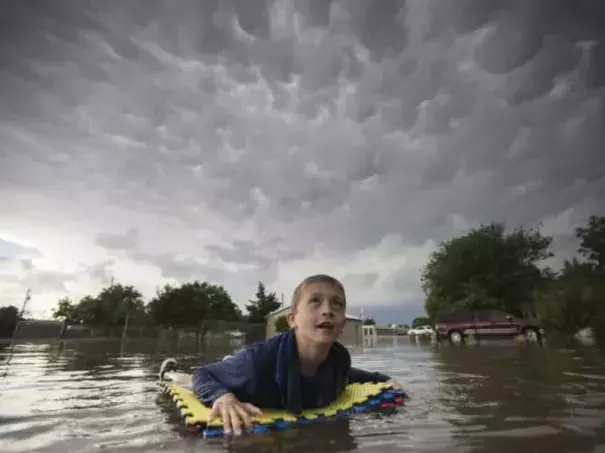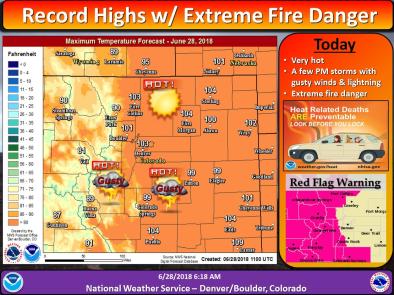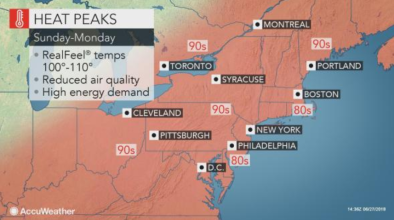Dangerous, oppressive heat wave to scorch central, eastern US as 'heat dome' expands

A dangerous and oppressive heat wave is forecast to scorch the central and eastern U.S. over the next few days, with record high temperatures possible in the Northeast.
The worst of the heat will start in the Midwest on Friday before creeping its way east toward the Northeast and Mid-Atlantic by Saturday and Sunday.
Temperatures of 100 degrees will bake parts of the central and southern Plains into Friday, according to AccuWeather.
The hot weather is courtesy of a strong upper-level ridge of high pressure, sometimes known as a "heat dome," which will park itself over much of the U.S. by the weekend, according to the Weather Channel.
In urban areas of the major cities, such as Chicago, St. Louis, Detroit and Cincinnati, cooling stations will be needed, AccuWeather warned. The vast expanse of concrete and pavement will give off heat at night and make sleeping difficult without air conditioning.
In Chicago, the heat index – how hot it feels when humidity is added in – could reach 115 degrees Saturday, the National Weather Service said.
...
A few spots could reach 100 degrees Sunday, including Syracuse, which has only done so 10 times since 1902.
Smoggy air will add to the misery: "Extended periods of sunny, hot, humid and calm weather are the perfect breeding ground for poor air quality conditions," according to AccuWeather meteorologist Faith Eherts.
Related Content





